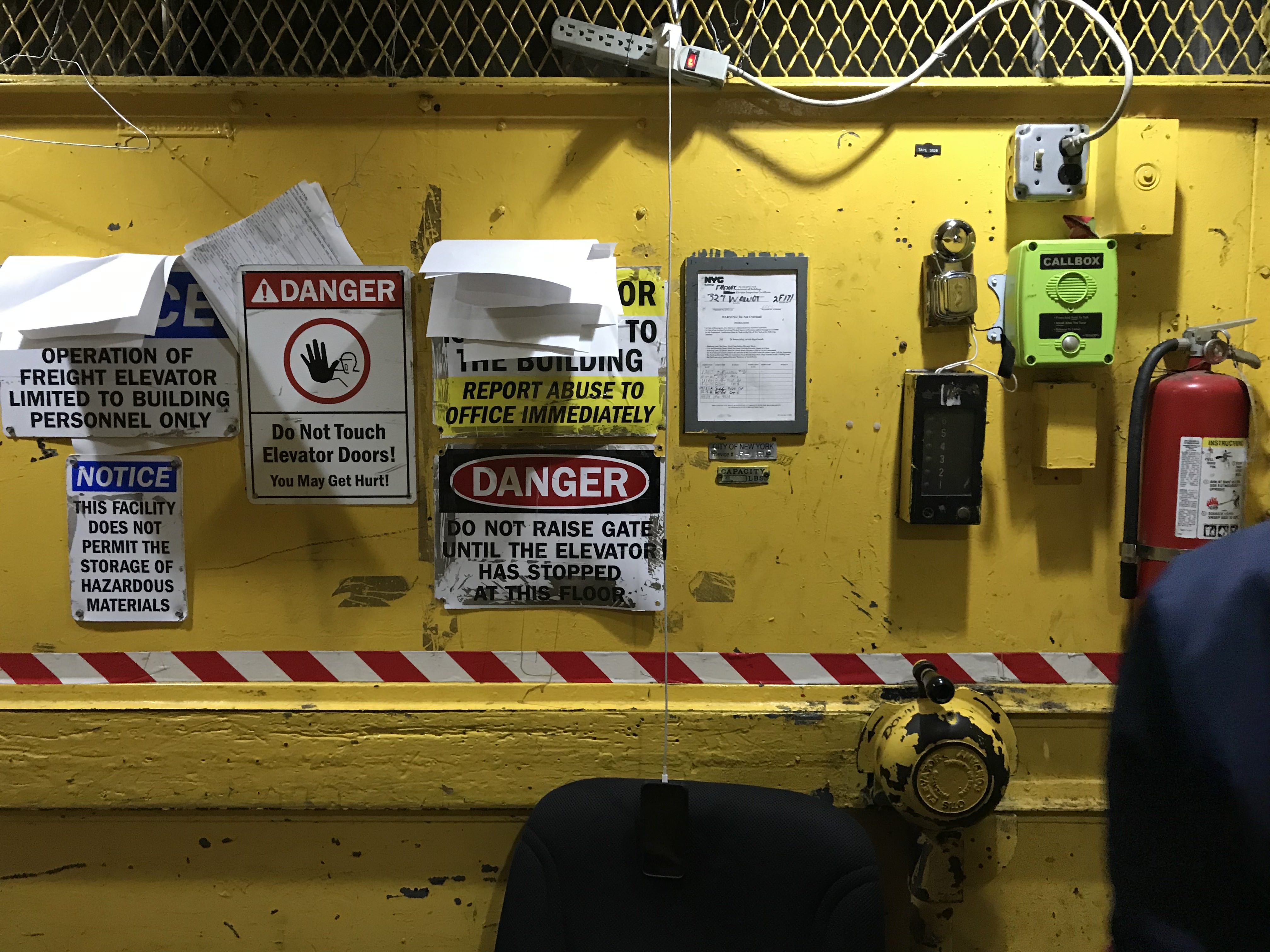NYC Mini Storage
I pack my clothes in a haze. Black t-shirt. Black t-shirt. White t-shirt. Black t-shirt. Most of my clothes are LOT now. I have been subscribed for 24 months, making this the two year anniversary of my subscription. Maybe I will get something special in this month’s package to commemorate the occasion. I log into the dashboard and reroute my packages to Austin, TX.
Each month the modules have reliably appeared, stuffed into my mailbox with a postmark from Hong Kong. I stayed in Hong Kong once. I slept in a converted warehouse equipped with eight couches and an array of speakers hunched around a DJ booth. From the balcony I could see across gleaming water to where massive ocean liners loaded with shipping containers glide silently in and out of the archipelago. Hong Kong is no longer a manufacturing center, but it was and still is a logistics hub. My travel partner commented that Hong Kong seems more real than NYC. He felt comforted by the ships and bootleg markets. NYC, he said, is nice, but not real. Portland, NYC, Tokyo, they have a good quality of life. But they abstract away from you the reality of just-in-time supply chains that support both human whim and subsistence. I doubt LOT is shipped by sea.
I clear out my drawers one by one, folding a few patterned pieces into my suitcase, the rest into cardboard boxes. The anonymous corrugated cubes were purchased from a local shipping supply store. I told the proprietor I’d probably be back if I realize I underestimated how many I need. As I exited I heard his voice behind me, boredly. “people often do.”
On Taskrabbit I hire a worker to help me move the boxes into the storage truck and disassemble my furniture. Each profile offers an entrepreneurial pitch. Professionalism, courtesy. I read some of the reviews and hire someone with an average number of completed jobs. As we move boxes he tells me about unfair thumbs down reports from dissatisfied clients. All the while my neighbors stare disapprovingly at the IKEA furniture we leave outside to be collected by one of those anonymous NYC department of sanitation trucks. Passersby leave sidelong glances at the white furniture pile. It stands out from the dirty curb. The downstairs tenant, a barber, chastizes me in broken English: “no good? no use? very new…” Later, however, my landlord will ask me why I put anything in storage at all. It’s the same cost as buying it new, he will insist. His wastefulness will make me feel better about myself. But also guilty. But also better.
On the way to the storage facility I read a piece about furniture rental services targeted towards millennials. By the time I arrive, the truck is already there and the driver has disappeared. I buy a lock from the receptionist and sign some forms. They will charge my card every month. It is late on Monday evening at the facility and I am the only customer there. I wheel up some rusting dollies to the truck bed and load them up, four dollies. I roll them loudly down an empty hallway, into an elevator, and up to my storage unit. It takes two trips. “ring this button when you’re done” says the operator and slams the elevator door.
Finally I am alone with my storage unit. Unit 2805. Inexplicably, I feel somewhat comforted facing this empty metal container. The forms I just signed say that this space belongs to me, for now at least.
One by one I move my things into the unit. Most of it is books, clothes, one expensive chair. As physical goods become fungible and ownership is economized away into streamed packets and automated warehouses, information and semantics become our only differentiating resource. I’m nothing without my beliefs. Sometimes I’m a technologist, sometimes a psychologist, a writer, a consultant, I hate describing what I do, I have research agendas and lines of inquiry, a reading list fifty books long, I wear black but sometimes a t-shirt and sometimes a rayon fur coat and sometimes thousand dollar gore-tex rain jackets, I adjust my value proposition, it just depends on who I’m talking to. I’ve synthesized a set of culture and information you and your employees can never hope to replicate, I say.
On the way down the elevator operator is playing music from his tiny iphone speakers into the echoey steel box. I ask him what he’s listening to and he tells me it’s his own song. His friend told him that African music is what people want to hear nowadays. He goes by Richie Rych and his manager hasn’t gotten back to him in weeks. I scroll through soundcloud, trying to remember the name of a UK label he should send his music to. I screenshot it to him and leave his number unnamed.
The material world is about to change completely. Is life above the API so different than life below?

